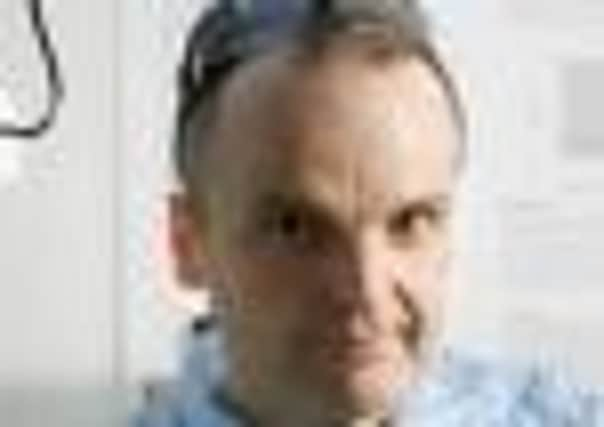Exclusive: University gets £20m for major linked projects


The University of Huddersfield plans to open the £11.5m Enterprise and Innovation Centre (EIC) for up to 100 small businesses and corporates next May after agreeing backing from the European Union and local government.
It is also going to plough £8m into an advanced research project for ultra-fine measurement, having won funding for a five-year project backed by a group of 12 industrials including Rolls Royce.
Advertisement
Hide AdAdvertisement
Hide AdThe two projects are not formally linked but the measurement research will feed into work at the EIC and could form the base for spin-out companies, according to one of the academics leading the scheme.
The EIC will help established businesses to build closer links with the university’s research and technical facilities. It will be based in the former waterside mill which was the home of the business school until last year and will be funded by £6.4m from the European Regional Development Fund, managed in this region by Yorkshire Forward, up to £1.3m from Kirklees Council and up to £3.8m from the university itself.
A complete renovation will see a large glass atrium and a third floor added to the Larchfield building alongside Huddersfield’s Narrow canal, creating space for 100 firms and 300 people. The ground floor will become an “innovation avenue”, where new ideas, equipment and technology can be showcased alongside research.
Dr Liz Towns-Andrews, the university’s director of research and enterprise, said: “This is fantastic not only for the university but the region as a whole. The EIC will be a completely new model for the way that universities work with business.”
Advertisement
Hide AdAdvertisement
Hide AdIt will be marked out by its help for firms in vital areas like access to markets, refining supply chains and new technology.
Companies will be able to use the university’s expertise and facilities, such as powerful computers, imaging, rapid prototyping and equipment used in metrology, the study of measurement.
Students will have a “high-powered commercial environment on their doorstep,” Dr Towns-Andrews added.
It is hoped the EIC will provide a home for spin-outs from the £8m metrology project, which aims to produce a “factory on a machine”, according to Professor Liam Blunt, head of the university’s Centre for Precision Technologies (CPT).
Advertisement
Hide AdAdvertisement
Hide AdExperts in the science of measurement, as well as machine tool accuracy and diagnostic engineering, will break new ground by taking to the factory floor technology which measures to one thousandth of the width of a human hair, meaning companies can fit machine tools with devices that ensure almost total accuracy.
The project, at the CPT, will boost industries including aerospace, optics and human joint replacement by increasing productivity without huge extra investment. It is backed by £3m from a consortium of firms including Rolls Royce, engineer Cummins Turbo Technologies and gearing firm David Brown, both based in Huddersfield, and Taylor Hobson, an ultra-precision technology based in Leicester. A further £4.7m comes from the Engineering and Physical Sciences Research Council.
Professor Blunt said the new technology would mean it is not necessary to take a product off a machine and measure it to check its size and quality.
“All the manufacturing control, in fact all the elements that you have, in a big factory will be squeezed down so that everything is done in the machine.
Advertisement
Hide AdAdvertisement
Hide Ad“You basically put a piece of metal in at the beginning and out of it comes the part, finished, measured and complete with quality documentation.”
Manufacturing to get an edge
THE science of measurement project at the University of Huddersfield will “give British manufacturing an edge”, according to one of the academics involved it setting it up.
Professor Liam Blunt said it will work with the new Enterprise and Innovation Centre, also at the university.
“They are not officially tied but the EIC will be our main conduit for the dissemination of what we do. There may be a few spin-outs set up from the research work.”
One of the main tasks, he added, is “how do we get what we do from being research-based to benefitting the region and the country?”